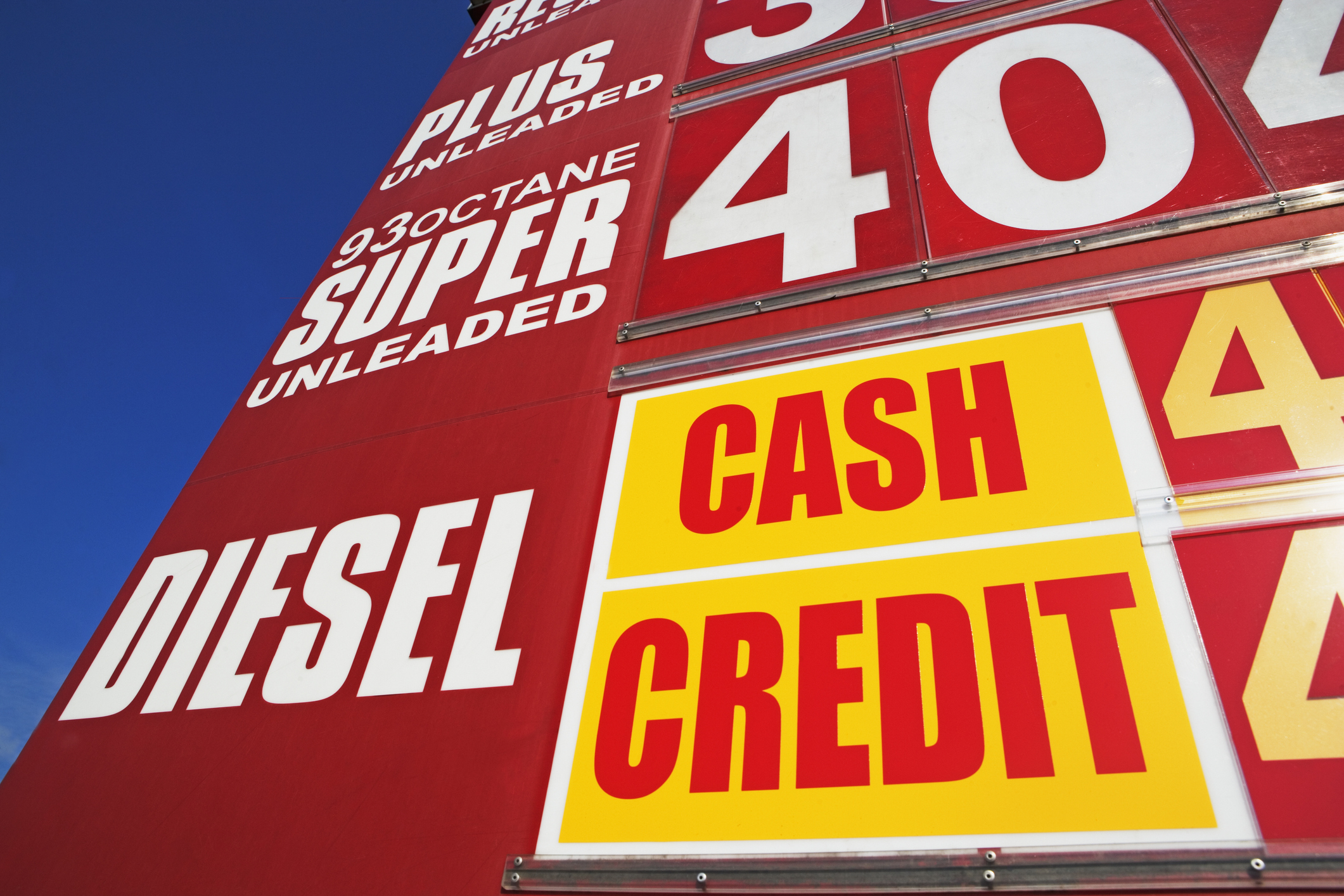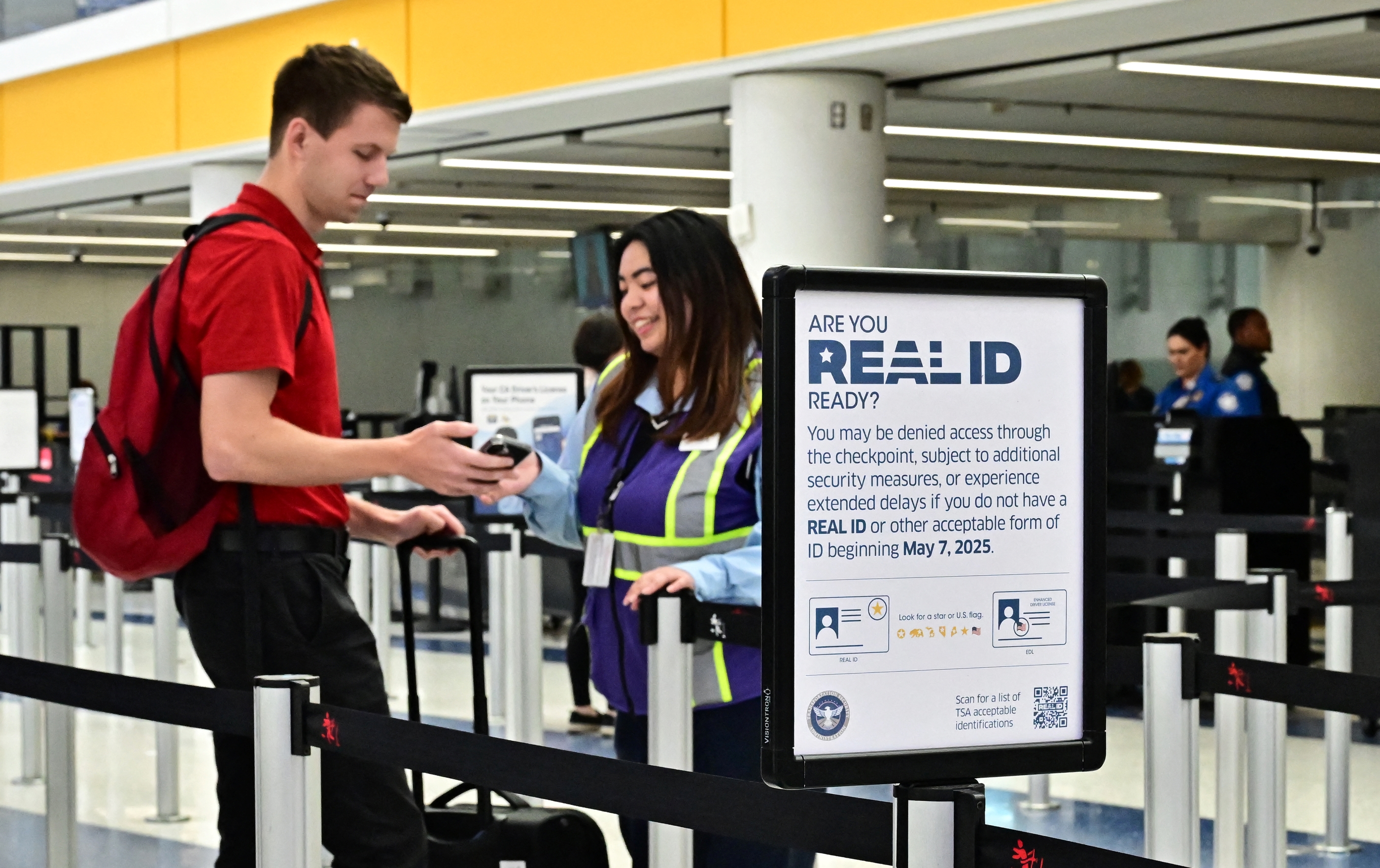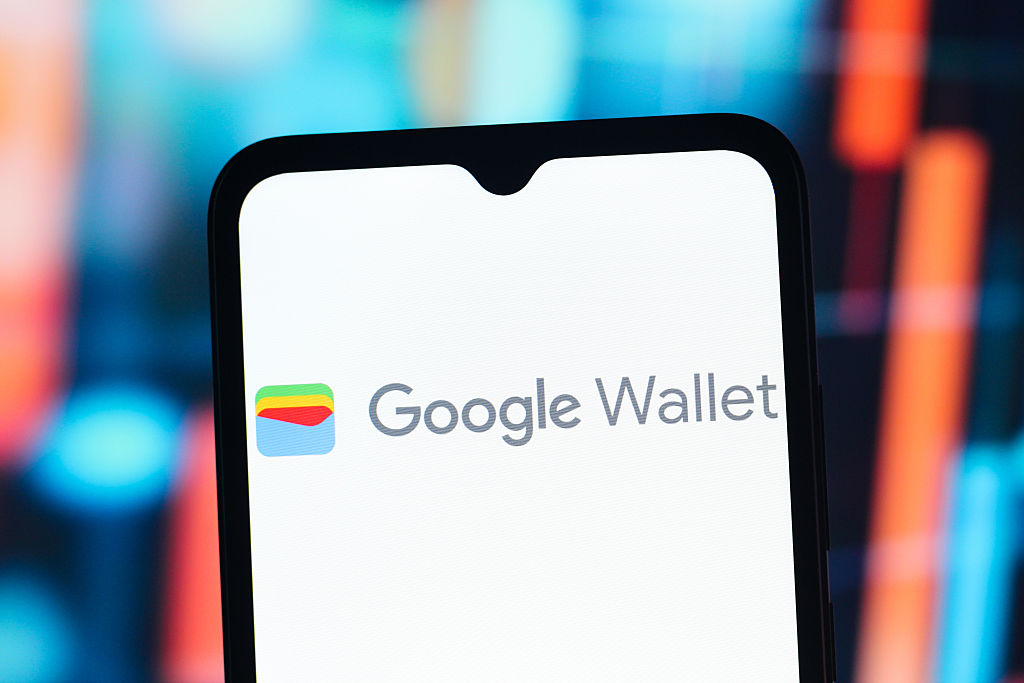Swipe Surcharge: How to Avoid Gas Station Credit Card Surcharges
Some gas stations are charging up to $1 more per gallon for credit card payments. Learn how to spot these fees and save on fuel.

Profit and prosper with the best of Kiplinger's advice on investing, taxes, retirement, personal finance and much more. Delivered daily. Enter your email in the box and click Sign Me Up.
You are now subscribed
Your newsletter sign-up was successful
Want to add more newsletters?

Delivered daily
Kiplinger Today
Profit and prosper with the best of Kiplinger's advice on investing, taxes, retirement, personal finance and much more delivered daily. Smart money moves start here.

Sent five days a week
Kiplinger A Step Ahead
Get practical help to make better financial decisions in your everyday life, from spending to savings on top deals.

Delivered daily
Kiplinger Closing Bell
Get today's biggest financial and investing headlines delivered to your inbox every day the U.S. stock market is open.

Sent twice a week
Kiplinger Adviser Intel
Financial pros across the country share best practices and fresh tactics to preserve and grow your wealth.

Delivered weekly
Kiplinger Tax Tips
Trim your federal and state tax bills with practical tax-planning and tax-cutting strategies.

Sent twice a week
Kiplinger Retirement Tips
Your twice-a-week guide to planning and enjoying a financially secure and richly rewarding retirement

Sent bimonthly.
Kiplinger Adviser Angle
Insights for advisers, wealth managers and other financial professionals.

Sent twice a week
Kiplinger Investing Weekly
Your twice-a-week roundup of promising stocks, funds, companies and industries you should consider, ones you should avoid, and why.

Sent weekly for six weeks
Kiplinger Invest for Retirement
Your step-by-step six-part series on how to invest for retirement, from devising a successful strategy to exactly which investments to choose.
There’s nothing quite like hitting the open road in the summertime with the windows down, music blasting and maybe even a cooler full of snacks. But if you’re not paying attention at the pump, you might be in for a rude awakening.
A growing number of U.S. gas stations are charging customers significantly more per gallon when they pay with credit cards. How much more? Sometimes up to $1 extra per gallon. Yes, you read that right.
This sneaky fee hike, often listed in tiny print at the pump, is known as a credit card surcharge. And while it’s technically legal in many states, it’s not always obvious to drivers, leaving many to scratch their heads when they see their total skyrocket after filling up.
From just $107.88 $24.99 for Kiplinger Personal Finance
Become a smarter, better informed investor. Subscribe from just $107.88 $24.99, plus get up to 4 Special Issues

Sign up for Kiplinger’s Free Newsletters
Profit and prosper with the best of expert advice on investing, taxes, retirement, personal finance and more - straight to your e-mail.
Profit and prosper with the best of expert advice - straight to your e-mail.
Before you load up on gas for your next road trip, here’s what you need to know about these fees, how they work and how to avoid them.
Why are credit card surcharges increasing at the gas pump?

If you’ve noticed those signs at gas stations listing two prices — one for cash and one for credit — you’ve spotted the surcharge in action. These fees are the gas station’s way of covering the credit card processing fees, which can range from 1.5% to 3.5% of the transaction total. These merchant fees can add up fast.
But here’s the kicker: gas stations aren’t just passing the cost along. In many cases, they’re marking it up for good measure. What started as a way to offset credit card fees has evolved into a lucrative opportunity for some gas stations — but at the average driver's expense.
At some places, you may see a difference of 10 cents to $1 per gallon in fuel pricing for credit purchases.
For example, a Florida business owner recently discovered that a local gas station was tacking on a full $1 per gallon surcharge just for using a card. Imagine filling up a 20-gallon tank and paying an extra $20 just for swiping your card.
State regulations on surcharges
Not all states play by the same rules. While credit card surcharges including these gas station pricing practices are legal in most places, there are a few exceptions. Here’s the breakdown:
- Connecticut, Maine and Massachusetts: These states have outright bans on credit card surcharges.
- California: A recent law bans surcharges effective July 1, 2024, requiring all fees to be included in the listed price.
- Colorado: Stations can charge up to 2% of the transaction as a surcharge.
- New York and Texas: Surcharges are allowed but require strict signage and disclosure.
In Florida, a previous ban on surcharges was struck down, making it fair game as long as the station informs customers . That said, the rules around signage are tricky at best. Some stations post signs so small you’d need a magnifying glass to spot them.
Naturally, drivers aren’t thrilled about this surprise fee hike. Social media is full of frustrated drivers sharing tales of $1 per gallon shocks and warning others to double-check pump prices.
If you don’t want to be one of them, here are a few tricks to keep more money in your pocket:
- Use debit or cash: These payment methods often don’t carry surcharges. Some stations even offer cash discounts.
- Look for signage: Always scan the pump and surrounding area for posted price differences.
- Ask before pumping: If it’s not clear, head inside and ask the clerk about their surcharge policy.
- Use apps to compare Prices: Apps like GasBuddy and Upside can help you spot the cheapest fuel, including surcharge differences.
- Leverage gas rewards programs: Some credit cards provide cashback on gas purchases, which can help offset the cost.
Don’t overpay at the pump. Compare Kiplinger’s top travel credit cards that offer gas rewards and other perks to help you save while you travel.
Stay mindful this summer
Before you hit the road for that cross-country trek or weekend beach getaway, make sure you know what you’re paying at the pump. Credit card surcharges are legal, but that doesn’t mean you have to fall victim to them.
With a little awareness and a few smart moves, you can keep more of your hard-earned cash in your pocket and instead spend it on a few more bags of road trip snacks. Summer adventures are all about freedom and fun and not surprise fees.
We may get compensation if you visit partner links on our site. We may not cover every available offer. Our relationship with advertisers may impact how an offer is presented on our website. However, our selection of products and services is made independently of our relationship to advertisers.
Related Content
Profit and prosper with the best of Kiplinger's advice on investing, taxes, retirement, personal finance and much more. Delivered daily. Enter your email in the box and click Sign Me Up.

Choncé is a personal finance freelance writer who enjoys writing about eCommerce, savings, banking, credit cards, and insurance. Having a background in journalism, she decided to dive deep into the world of content writing in 2013 after noticing many publications transitioning to digital formats. She has more than 10 years of experience writing content and graduated from Northern Illinois University.
-
 Quiz: Do You Know How to Avoid the "Medigap Trap?"
Quiz: Do You Know How to Avoid the "Medigap Trap?"Quiz Test your basic knowledge of the "Medigap Trap" in our quick quiz.
-
 5 Top Tax-Efficient Mutual Funds for Smarter Investing
5 Top Tax-Efficient Mutual Funds for Smarter InvestingMutual funds are many things, but "tax-friendly" usually isn't one of them. These are the exceptions.
-
 AI Sparks Existential Crisis for Software Stocks
AI Sparks Existential Crisis for Software StocksThe Kiplinger Letter Fears that SaaS subscription software could be rendered obsolete by artificial intelligence make investors jittery.
-
 $100,000 Travel Emergencies You Don't See Coming and How to Prepare
$100,000 Travel Emergencies You Don't See Coming and How to PrepareTravel emergencies can get expensive fast. Here's how to protect your wallet from the worst-case scenario.
-
 Countries That Will Pay You to Move: Cash Grants, Incentives and What to Know
Countries That Will Pay You to Move: Cash Grants, Incentives and What to KnowExplore real relocation incentives — from cash grants and tax breaks to startup funding — that make moving abroad or to smaller towns more affordable and rewarding.
-
 How to Plan a Microvacation That Actually Feels Restful
How to Plan a Microvacation That Actually Feels RestfulHow a simple long weekend can boost your mood, reduce stress and make winter feel shorter.
-
 What Not to Do in an Airport Lounge
What Not to Do in an Airport LoungeBefore you settle into that cushy lounge chair, skip the rookie moves that annoy other travelers and can even get you kicked out.
-
 5 Unique Book-Inspired Trips Across America
5 Unique Book-Inspired Trips Across AmericaThere are five great trips to take across America that can immerse you in the culture of your favourite books.
-
 A New $45 TSA Fee Is Coming in February: What to Know
A New $45 TSA Fee Is Coming in February: What to KnowDon't have a REAL ID yet? You might get hit with a fee to go through security at the airport in February.
-
 The Best (and Worst) Airlines for Flight Delays and Cancellations
The Best (and Worst) Airlines for Flight Delays and CancellationsWhich airlines should you book and which should you avoid if you want to make it to your destination on time?
-
 How to Add Your Driver’s License or State ID to Google Wallet
How to Add Your Driver’s License or State ID to Google WalletStore and use your digital ID securely on your Android device for TSA, age verification and more.
